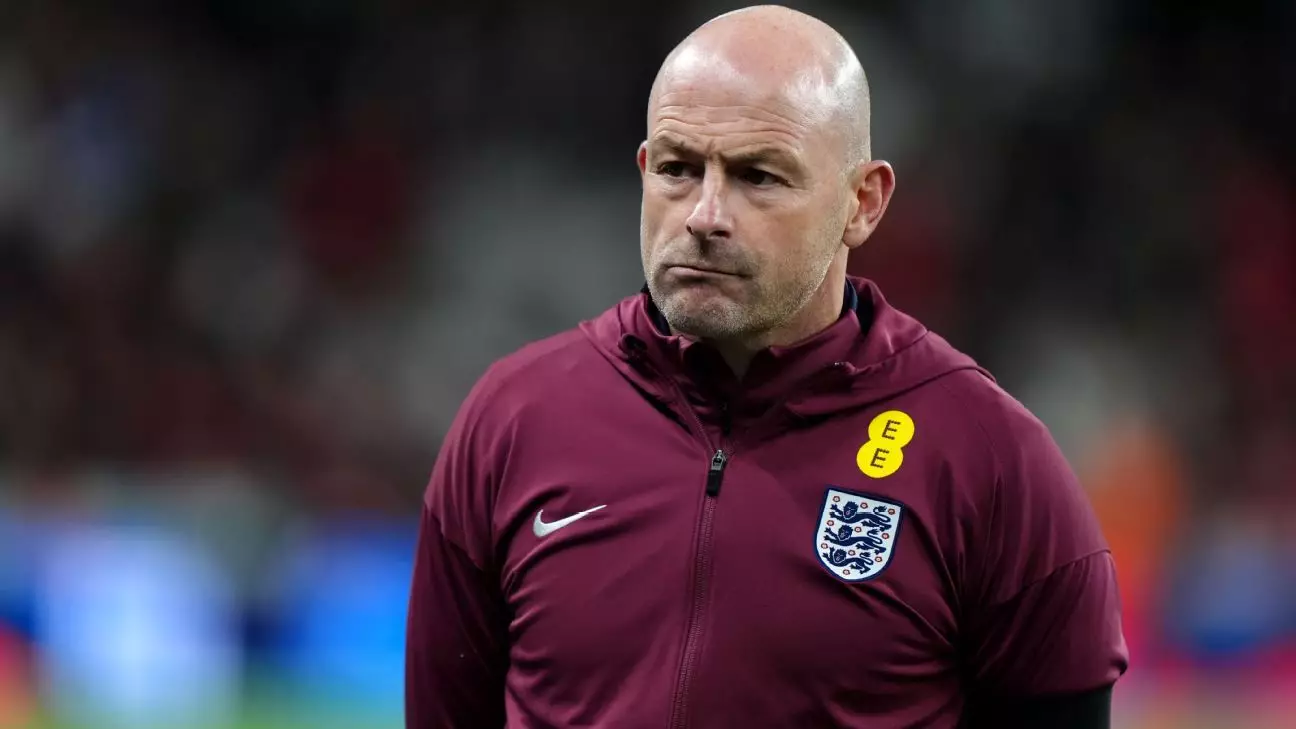In recent years, English football has witnessed a remarkable evolution, showcasing an impressive crop of young attacking talent. Players like Bukayo Saka, Jude Bellingham, Phil Foden, Cole Palmer, and Anthony Gordon have been touted as the future pillars of the national team. However, their recent outing against Greece in the UEFA Nations League unveiled a critical truth: the abundance of attacking talent does not guarantee success. Interim manager Lee Carsley faced the daunting task of capitalizing on this wealth during a pivotal match. Unfortunately, what transpired was a stark reminder that football is as much about cohesive strategy and balance as it is about individual brilliance.
In the lead-up to the match, Carsley decided to pen a tactical experiment by stacking the lineup with some of the nation’s most promising attackers. With Harry Kane sidelined by injury, he took a leap of faith by including multiple offensive-minded players. However, this decision backfired spectacularly as England fell to Greece by a scoreline of 2-1. The lack of defensive solidity was glaring, as evidenced by Greece’s overwhelming superiority throughout the match. The Greeks had the ball in the net five times, but the celebrations were muted due to an offside rule that allowed only two goals to count. Even more troubling, England’s attacking efforts were few and far between, with only a couple of shots on target throughout the contest, cast under a glaring spotlight of inefficiency.
The match revealed a significant tactical imbalance within the English setup. Carsley’s vision of a fluid attacking style faltered as the players struggled to find cohesion. While players like Bellingham, Foden, and Palmer are undeniably talented, their presence on the pitch did not translate into an effective unit. The midfield became a chaotic battleground where attacking intentions clashed, leading to defensive vulnerabilities. Declan Rice, often viewed as the bedrock of the midfield, was left to extinguish fires while his attacking counterparts were caught high up the pitch. This imbalance proved detrimental, ultimately granting Greece the upper hand, which they capitalized upon mercilessly.
With the absence of tactical clarity, Carsley was forced into reactive substitutions that failed to rectify the course of the match. Saka’s injury compounded the challenges. The introduction of Gordon and Foden was meant to inject fresh energy, but it came too late to salvage a disastrous performance. The experiment of mixing so many attacking talents may have seemed appealing on paper, but it illustrated a fundamental flaw: successful football requires not only talent but also synergy, discipline, and a strong defensive framework.
Carsley expressed a willingness to take the blame for the tactical mishap, acknowledging that his vision did not materialize as intended. As he put it, “It was a case of let’s try something different, and I’m happy to take blame for that.” His admission, while commendable, signals the need for a thorough reassessment of the approach in the coming fixtures.
The defeat against Greece was not merely a setback; it was a wake-up call signalling that a persuasive football philosophy must be rooted in practical experience. As Carsley readies the team for their next match against Finland, he must reconcile the enthusiasm for young talent with the discipline required to mold a cohesive, effective unit. The FA, still in search of a permanent manager, will undoubtedly scrutinize this game closely while weighing Carsley’s capabilities as a potential long-term successor.
The haunting question now lingers: can England’s dazzling array of attacking stars coexist without compromising overall team effectiveness? Carsley’s experiment against Greece, much to the chagrin of supporters and players alike, has provided a definitive answer — at least for now. For the interim manager, the road to redemption will be arduous, and every step will involve striking a balance between the undeniable flair of his players and the fundamental principles of tactical cohesion.
As this chapter closes, one thing becomes unequivocally clear: the quest for success in international football is a multifaceted challenge that demands unity, preparation, and a keen understanding of the game’s tactical nuances. England must learn from this experience or risk further implosions in future encounters on the international stage.


Leave a Reply